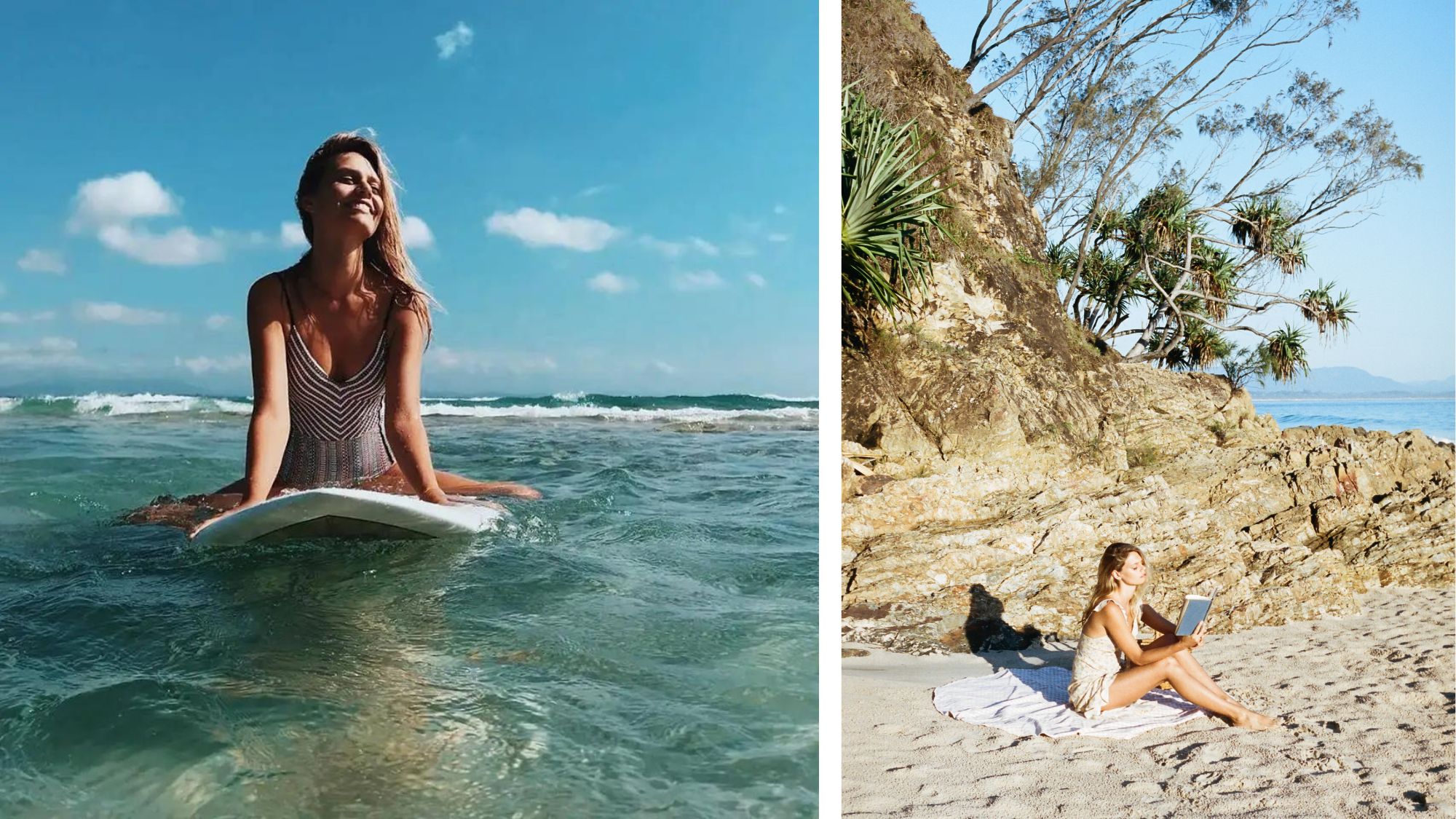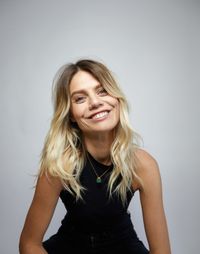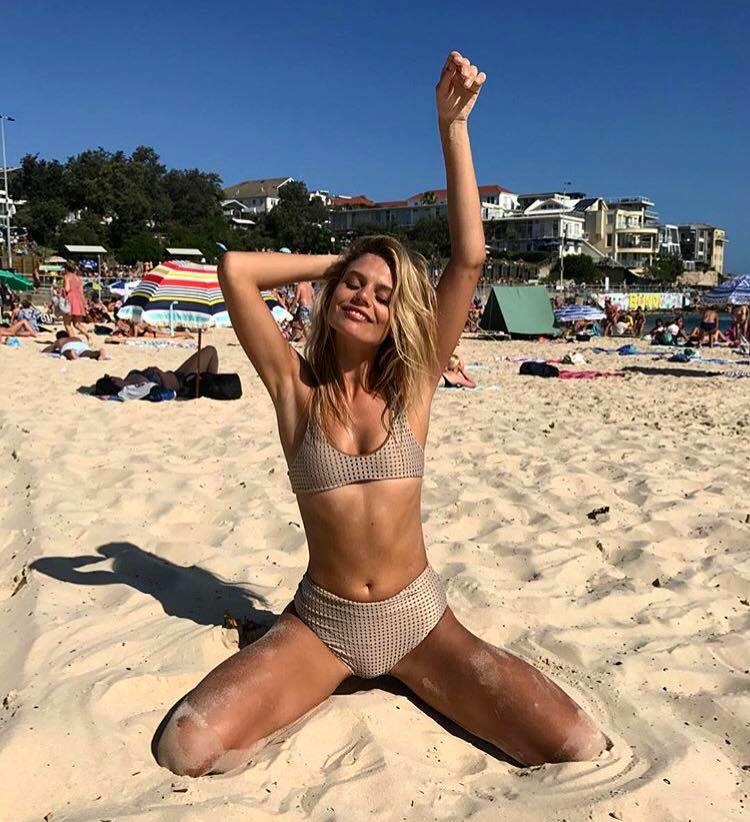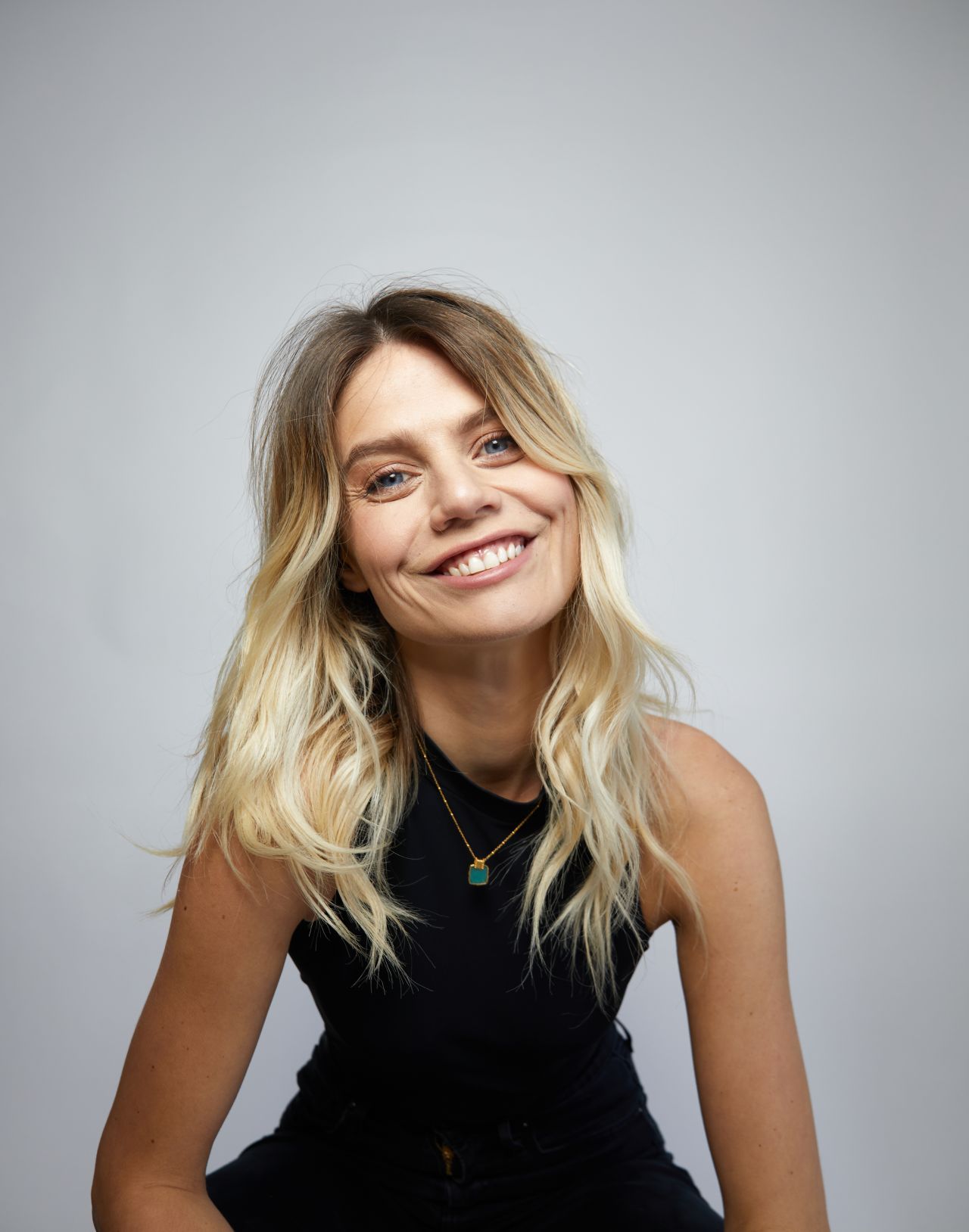“Deleting social media saved my life” - An ex-Vogue model opens up about the pressure of maintaining an online presence
Leanne Maskell talks about how #livingthedream turned into a living nightmare


When I was 13, I got a message on Myspace (a pre-Facebook social media platform that made you publicly order your top eight friends) from the girls who’d bullied me for years for being ugly. “You look amazing in Vogue!!!” it said. I was confused. Nothing had changed about my apparently offensive appearance except a stranger had decided it could be put to use. I didn’t want to do the photo shoot, but I was pressured into ‘just trying it out’. This meant being undressed by two men who laughed when I tried to cover up my non-existent breasts and made me kneel provocatively in the woods as the “new face” of a womenswear brand.
The shoot was a horrible experience, but getting this message from my bullies seemed worth it. People seemed to like me more if I was in magazines, so modelling became my shield. I went on to be known as The Model at school. I was on the cover of magazines and billboards, and I stumbled down catwalks. I hated it all. I was humiliated by strangers in the freezing cold, made to pose in ways I didn’t understand—like leaning into car windows—and starved myself with severe eating disorders.
I kept modelling because it gave me content to share and made me feel slightly more in control of my body image. I felt ashamed that nobody—including myself—would ever be able to look like the girl in the magazines because the photoshopped version didn’t exist, but it didn’t stop me from trying. When I had my makeup done professionally, I’d keep it on for days, carefully sleeping in it.
I was humiliated by strangers in the freezing cold, made to pose in ways I didn’t understand—like leaning into car windows—and starved myself with severe eating disorders.
Leanne Maskell
I carried on this way for years. Strangers measured me every week, and I was pressured to undress by male photographers in their bedrooms and criticised for my appearance every single day. Instagram helped convince me that this was what I wanted. I became addicted to portraying my fake reality in return for external validation. It didn’t matter how bad things got—like being put into debt or made to share beds with strangers on shoots abroad—my Instagram always gave the impression of #livingthedream.
The best parts of my day were posting #BTS selfies after two hours of professional hair and makeup, giving the illusion of being booked and busy. On the many days when I had no work, I’d post old modelling photos with the innocuous caption ‘Happy (insert day of the week)!’ I felt compelled to constantly give the illusion of being in demand, and I became obsessed with how potential clients would see my profile.
After Instagram launched, clients began asking how many followers I had, and an agency persuaded me to buy fake followers, which were then very cheap. However, it’s not easy to get rid of these, and I had constant anxiety about being ‘found out’ as my engagement didn’t match up with my follower count. Like many other models, I ended up buying fake likes and comments on an almost daily basis, which became expensive.
I became addicted to portraying my fake reality in return for external validation.
Leanne Maskell
I hated myself for feeling like I was lying and also making others feel bad about themselves, but objectifying myself was all I knew. Curating a fake, happy, and popular version of myself gave me an illusion of control, and I could easily justify it for work. I had no other reference point for my life or who I was.
Celebrity news, beauty, fashion advice, and fascinating features, delivered straight to your inbox!
I moved to Australia hoping for an Instagram version of a Disney-style happy ending, but this, too, turned out to be an illusion. Living in a real-life Instagram bubble made me even more unhappy because I felt I should be happy, and I couldn’t understand why I wasn’t. I was surrounded by beauty, but I’d never felt uglier.
I felt like I’d reached the end of the rainbow only to discover that there was nothing there. I developed a secret obsession with ending my life. I’d refresh the same Instagram geotag where other people had ended their lives multiple times a day. I was trying to predict the success rate of my death as if it were a new form of content I was planning on testing. I couldn’t bear surviving and hearing how incredibly ungrateful and selfish I was. As my family liked to remind me, children were starving in Africa.

Fortunately, before I had a chance to delete myself, I realised I could delete my social media accounts instead. If I didn’t want to live anyway, I might as well try living without this online identity first. Deleting my Instagram and Facebook accounts completely saved my life. The noise disappeared instantly—there were no likes, notifications, or messages to reply to—just the real world around me and the freedom of a new identity. I stopped doing things for social media and started doing them purely for my own enjoyment. I realised how many of my relationships were dependent on social media and started building a life that felt good in real life.
After a few months, I re-entered the world of social media with brand new accounts on my terms, treating it like sugar - nice to have in small doses but easily hidden and highly addictive. It was refreshing to start my accounts anew, but for many young people who’ve grown up online, the thought of this must feel like cutting off their own leg. As a coach, I’ve been in the unique position of understanding the realities teenagers growing up on social media face today, as well as the confusion of their parents who grew up in a different world.
Today, I see everyone having experiences similar to mine. Social media allows us to star in our own non-stop photoshoots, objectify our experiences, and commodify our bodies. For many, our online presence has become an extension (or replacement) of our real-life identities. ‘Influencing’ has become a seemingly viable career option for many young people, but trust me when I say that selling who you are instead of what you can do can feel like selling your soul. It took deleting my entire social media presence to get mine back.
Leanne Maskell is the founder of ADHD Works and the author of The Reality Manifesto: An A-Z anti exploitation manual for social media, mental health, & body image (out now, £12.99).

Leanne Maskell is the author of The Reality Manifesto and campaigner on how to protect your wellbeing on social media